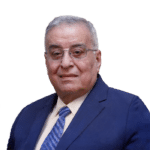MED Dialogues

Ugo Tramballi
Senior Advisor, ISPI

Vivian Yee
Cairo Bureau Chief, New York Times

Abdallah Bou Habib
Minister of Foreign Affairs and Emigrants, Lebanon
Over the last two years, Lebanon has faced multiple and intertwined challenges within a political, economic and financial crisis further exacerbated by the Covid-19 pandemic and the Beirut Port explosion. Liquidity problems, poor energy and healthcare infrastructures, continuous shortage of essential goods, and simmering tensions in domestic politics have stood out among the challenges that the new government is currently engaged with. Formed in the aftermath of a 13-month power vacuum, the cabinet has been tasked with addressing the dire socio-economic effects of this multi-faceted crisis, while preparing the ground for the next general elections scheduled for March 2022.
A number of issues have so far proved particularly difficult to untangle for both internal and external reasons. In some instances, foreign interferences have contributed to further complicating the domestic situation, exacerbating existing fragilities and disrupting the state’s internal equilibrium. As it struggles with one of the three most severe economic and financial crises the world has seen since the mid-19th century, Lebanon is also being challenged by strained relations with the Gulf countries, whose trade and financial ties have always played a crucial role for Beirut.